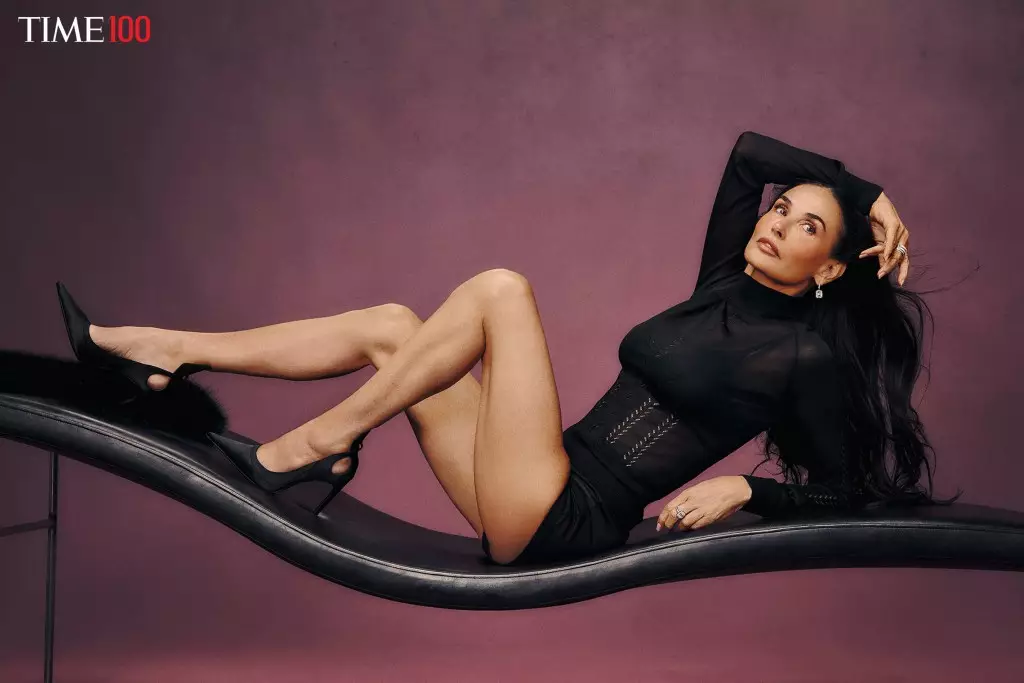Time magazine’s annual list of the 100 most influential people serves as a cultural thermometer, not just reflecting who is trending but also illustrating the evolving landscape of power and impact. This year, the prominence of entertainers like Demi Moore and Snoop Dogg underscores a yearning for playful escapism amid the complexities of modern life. Yet, one must question: what does it mean for society when our primary role models are often plucked from the glitzy realms of Hollywood and the music industry? Are we cultivating a culture that prioritizes charisma over substance?
This year’s lineup is saturated with big names—Scarlett Johansson, Ed Sheeran, and Nikki Glaser, to name a few. Each person listed brings a unique flair, but together they create a tapestry that risks conflating fame with genuine influence. This worrying trend highlights how society increasingly values visibility over virtue. The voices that contribute to this year’s list—Shonda Rhimes, Chris Evans, and Patti LuPone—legitimize the selection process but also play into a system that raises celebrities to elevated platforms, often overshadowing those whose influence may lack the same flashy allure but hold profound societal respect.
Challenging the Notion of Influence
Time’s distinct editorial practice of pairing influential figures with guest writers offers a unique perspective, yet it simultaneously raises eyebrows about accountability. While having Will Ferrell commemorate Lorne Michaels is delightful, it veers dangerously close to an echo chamber where only the most palatable narratives thrive. The result is a curated reality that can feel detached from the daily struggles the average individual faces. In a world fraught with socio-economic challenges and political turmoil, it brings into question if these entertainment icons truly resonate with the lived experiences of ordinary citizens.
Moreover, the list overlooks an essential element of influence: activism. Figures like Greta Thunberg and Malala Yousafzai engage in deeply transformative work that challenges the status quo, yet they often do not receive the spotlight they deserve. Influence is not merely about drawing crowds; it’s about inspiring action, fostering discourse, and initiating change. In a media landscape brimming with influencers, those who wield their platforms for social good should be the ones heralded, not just those who entertain or distract.
The Peril of Celebrity Worship
The yearly unveiling of this list sparks conversations that are, in many cases, superficial. For instance, one has to consider the implications when we prioritize figures like Elon Musk, who may be more notorious than notable, over individuals advocating for justice or equality. The media has long grappled with the nuance of celebrity culture, oscillating between glorification and condemnation. It has never been more vital to discern where attention really belongs and what legacy we wish to construct as our societal heroes.
As long as Time continues to present a blend of talent and notoriety without adequate attention to ethical conduct and meaningful contribution, we risk championing a facade rather than real influence. The glamorous siren call of fame is alluring but deceptive; it’s the responsibility of society to navigate this landscape with a critical eye. After all, true influence should challenge, uplift, and incite progress, rather than merely serve as a feather in the cap of those who entertain us.


Leave a Reply